- Home
- Jean Stone
Off Season Page 2
Off Season Read online
Page 2
Last summer she’d married Ben, the man she’d probably fallen in love with the first time she’d seen him more than three years ago, when she’d opened the door wearing no makeup and sporting just-rolled-out-of-bed hair. The fact that the bed she’d just rolled out of she’d been sharing with Christopher had not mattered much at the time.
But it had become a huge part of why she had to say no now.
Still, Addie was right. Alone, on her own, Jill was having a difficult time reshaping her career. Even getting good freelancers, shooters and editors, was tough. The one she was using here in Vermont she’d begged out of Boston with a steep one-shot fee.
There was a time she never had to ask if someone wanted in on a job, because success indeed bred success, and everyone wanted to be associated with winners.
But right now she couldn’t get a nibble from a network, let alone a commitment from one story to the next, not from a feeder service, not from someone to shoot it.
Blackballed, Ben had said. He blamed Addie, of course, saying that the barracuda of an agent must have had more power than they’d once thought.
Life in the limelight, for all its glamour and glitz, was vicious and fleeting and all a big game.
Yet for reasons she did not understand, Jill did not pick up the phone now, return Addie’s call, and simply say “Thanks, but no thanks.”
After hanging up the phone, Ben had attacked the lobster trap with gusto. Some rope webbing for the “door,” some slats for the sides, and suddenly it looked like the picture in the book he’d found at the library, a picture similar to the one Mindy said she’d downloaded from the Internet but that he was too damn stubborn to follow because he didn’t like computers and didn’t trust that dotcom stuff.
So now the coveted trap was complete, and it looked damn fine, and it was only eight-thirty—too early to go home to the empty house in Edgartown: empty, of course, except for Amy. Unlike Jill’s son, Jeff, Amy had not fled for college in England as soon as their mother and Ben announced marriage plans.
He could go to his own daughter’s over in Tisbury. With a husband and two kids, Carol Ann had become a good old-fashioned cook. Maybe she could rustle up some leftovers for her old man.
He supposed what he should do was work on the plans for Sea Grove. Or at least try and determine where he was going to find room for the kids to build these damn lobster traps now that he’d “mastered” the craft.
Maybe some coffee would help.
He stood up and stretched, then headed to the tiny galley kitchen he’d installed for emergencies like this. As he scooped coffee into the old aluminum pot, he thought he heard voices. And leaves rustling outside.
“Hello?” he called out. No answer. He shrugged and put the pot on the two-burner stove, when he heard voices again. “What the hell?” he muttered. He set down the pot and walked to the window.
He peered out the window into the darkness. It was, of course, impossible to see anything because on the Vineyard darkness was darkness, especially once summer had rolled into fall. He snapped off the inside light and hit the switch for the floodlights.
In the small parking lot, parked behind his prized ’47 black Buick, was a police car. One man had already emerged and was leaning against the car, looking toward the museum. Then the driver’s door opened, and a man Ben recognized as Hugh Talbot got out.
Ben squinted, as if squinting would tell him what the hell Hugh, the sheriff of Gay Head, was doing there. If Ben had been home at Edgartown and not at Menemsha, his first thought would have been that the museum had burned down. Again. The mere thought spun his memory back to that ache of a day when he had looked across the ridge of dunes and seen Menemsha House enveloped in red-orange flames, when fire had brought pain and anguish and death to the island.
Instinctively, he backed from the window. Then he noticed another man cut across the lawn and march toward the police car. Even in the darkness, the heavy gait and untrimmed beard made the man recognizable: it was Dave Ashenbach, Ben’s unpleasant museum neighbor, Mindy’s grandfather, the man who had finally stopped grumbling about “trespassing,” or so Ben had thought.
He watched Hugh and Ashenbach exchange what appeared to be sharp, angry words. Then Ben sighed and walked toward the door. Whatever was going on, he figured it was no coincidence that this small crowd had gathered in his parking lot. Opening the door, he adjusted his Red Sox cap and stepped onto the front steps without his boots, with only his heavy gray socks on his feet.
“Gentlemen,” he called, “what brings you here on this fair night?”
The men stopped talking and looked in his direction. No one said anything.
Scowling, he stepped down and padded toward the men.
Hugh raised a hand, gesturing him to stop. Automatically, Ben did.
Hugh turned to Ashenbach. “Don’t move a fucking muscle,” he said, “or we’ll cuff you, too.” Then the sheriff started toward Ben.
“Ben,” he said slowly, as he approached, “how’re you doin’ tonight?”
Something about Hugh’s words or his walk or the way his face was masked in the shadow from the floodlight sent a sharp surge of warning up Ben’s spine. “I’ll be better once you’ve told me what the hell’s going on.”
Hugh turned again, as if to be certain Ashenbach had not moved. Then he looked at Ben. “Let’s go inside.”
Something had definitely happened.
Jill. Quickly Ben shook off the thought. He had, after all, just talked to his wife. But Amy? Had something happened to her?
Oh, God, he thought suddenly, a chilling numbness slithering down his arms to his hands. Maybe it was not about Jill’s daughter, maybe it was about his. Maybe something had happened to Carol Ann … or to one of his grandkids.…
He didn’t move. He couldn’t move, as if someone had poured cement into his socks. “Say what you have to say right here, Hugh.”
The sheriff glanced back to the cruiser, then to Ben. “Inside,” he repeated.
Somehow Ben managed to pick up his feet. Somehow he put one in front of the other in the slow-motion motion of time crawling forward to that unwanted destination known as Bad News.
Hugh followed him inside. He pulled Ben’s hands behind him and clamped cold metal around his wrists. “Ben Niles,” Hugh said, “you’re under arrest for indecent assault and battery on a child under the age of fourteen.”
Chapter 3
Rita supposed she was having a hot flash. She supposed the reason she was standing at her window with her body half-hanging outside in the freezing autumn morning was because that time had finally arrived, though she was only forty-six and it seemed premature.
The bitch of it was, she knew she was right. She’d missed her period last month and the month before that, too, and the gravity-slide of departing estrogen had already begun to thicken her middle. She’d heard of those symptoms, but no one had told her she’d be nauseous as well. The only good part, Rita supposed, was that she’d no longer have to worry about getting pregnant—as if that were an issue, for the last time she’d checked, in order to get pregnant one had to have sex.
She stepped back from the window, wondering if she’d ever have sex again, and if this quasi-hot flash didn’t have more to do with nerves than with her ovaries drying up.
Not that Rita Blair had anything to be nervous about.
Throwing on the long chenille robe that she still liked though she now could wear silk, she ambled downstairs to brew up some coffee, grateful with each step that she owned this old saltbox free and clear, yet still pained by the fact that it had been the life insurance that Ben Niles—Kyle’s employer, Jill’s husband, her friend—had taken on Kyle that had paid off her debts, that had set her financially free. The death of the son, saving the life of the mother. Though it had been over three years, Rita knew that would never be right.
As she entered the kitchen, her heart filled with Kyle, she didn’t expect anyone to be at the table. She screamed, startling her mothe
r, who screamed back in return.
“Jesus, Mother, you scared the shit out of me,” Rita said once she’d regained her composure. “Do you have to creep around in the middle of the night?”
“It’s not the middle of the night, it’s eight in the morning,” Hazel commented. “And if anyone’s creeping around, it’s you, not me. I’ve been sitting here for hours. I’ve had an entire pot of coffee and read The Gazette twice over.”
Rita checked herself before saying Bully for you, remembering that Hazel was pushing eighty and was only up from Florida for a visit, though she’d declined to say for how long. She smiled at the woman whose hair was still as flame-colored as Rita’s (L’Oréal number 4LR, because they were both worth it) and marveled that the recently widowed Hazel was in full makeup already, though there were no men around as far as Rita could tell.
“I think I’ve hit menopause,” she announced to her mother. She did not mention that she dreaded this “passage” because she’d watched Hazel go from mere crazy to berserk between her mid-forties and fifties and was afraid she was in for the same.
“Have you missed your friend?”
Hazel had always referred to her period as her “friend,” as if a monthly gush of blood accompanied by double-you-over cramps was the kind of friend every girl would want. “Yes,” she replied. “Twice.”
“You sure you’re not pregnant?”
Rita closed the cabinet a little too firmly. “I’m forty-six years old, Mother. I’m not pregnant.” She did not feel a need to announce that the last time she’d had sex was last summer. She had been with Charlie, of course, because since Kyle’s death, Rita was just too damn depressed to go near anyone else. After that last time, though, she hadn’t even gone near him again.
“Not because Charlie Rollins wants it that way. How many times has he proposed to you now?”
Gritting her teeth, Rita began making a fresh pot of coffee. She regretted ever confiding in her mother. “I’m not pregnant,” Rita repeated. “And I’m not going to marry Charlie Rollins. I’m not going to marry anyone.”
“Oh, that’s right, I forgot. Little Rita is too good for any man. Well, your friend Jill isn’t. She’s made a nice marriage for herself. You should follow her example. Take a leap of faith.”
It amazed Rita that, over forty years later, her mother was still holding her daughter up to the standards of Rita’s childhood best friend. It also amazed Rita that such a mention could still send prickles up her spine.
“Sorry, Mother,” she said, “but it appears that the only leap I’ll be making is into menopause: hot flashes, memory lapses, and vaginal dryness.”
Her mother picked up the newspaper. “Then get on the phone to Doc Hastings,” Hazel said. “No sense in you becoming as nuts as I was.”
As nuts as you are, Mother, Rita wanted to say, but instead she asked, “You think I should take estrogen?”
Her mother opened the paper again, perhaps to doublecheck the obituaries (a favorite pastime) to see if anyone she knew was there, life laid out on a page. “Just call Doc Hastings. Say it’s an emergency. Or you’ll end up like me and no one will have the guts to tell you.”
Rita wondered if all mothers had the ability to read their daughters’ minds. Then she wondered how it was that, yes, Jill had finally made a “nice marriage,” while Rita could no longer even make a commitment to have sex, even with Charlie, the one man in her life she supposed she’d ever loved; Charlie Rollins, Kyle’s father, though he’d known that too late.
Suddenly, the thought of coffee made her feel sick. She grabbed a bagel instead and ate it dry on her way upstairs to get dressed.
Even though the season was over, Rita had told Charlie she’d still work at the tavern. Without that she’d be bored and probably anxious as hell with Hazel around. Besides, working helped take her mind off Kyle now that the tourists had departed and distraction was tougher to find.
She still had her real estate business, such as it was, and still kept her magnetic SURFSIDE REALTY sign on her aging Toyota. But Rita had long since given up trying to compete with the big guys. Nor had she succumbed to working for them. It was a matter of principle: she was a native to the island—a thoroughbred Vineyarder, the yuppies called them—and the big business maggots were not.
Of course, there was Sea Grove now, the elegant development of big-ass houses that she and Charlie and Ben Niles were planning to build. Imagine, she thought as she unlocked the back door of the 1802 Tavern, Rita Blair, a real estate mogul. But the pleasure she might have taken in the concept was once again snuffed out by the fact it had been that damn double-indemnity policy that had provided her the funds to buy in.
Ben and Charlie had tried to talk her out of it.
“Kyle wanted your life to be easier,” Ben had said not long after the funeral.
“Use the money for yourself, Rita,” Charlie had added. “Buy a new wardrobe, take a trip around the world. He would have wanted you to have some fun.”
But fun was the last thing Rita had felt like having. So she’d paid off her bills, including the twenty grand she owed Charlie, and stuffed the rest in the bank, where it sat until the Sea Grove deal surfaced.
They said it was a risk, but Rita figured that so far her whole life had been nothing but risks, so what was one more? Anyway, she had to believe Kyle would be happy to think she’d invested “his” money with the two most important men in his life: his boss and his dad. It made the presence of the cash a little less painful.
The tavern was quiet when Rita closed the door behind her. She glanced around the low-ceilinged, oak-beamed kitchen. The shiny copper pots hung as they should—charmingly Old New England, visibly inviting to the peering eyes of tourists, and steering their gaze away from the beat-up aluminum pans stored under the cabinets, the pans that, in reality, they used.
Then she noticed the far end of the room, where Charlie Rollins sat, Charlie the tavernkeeper, since he’d bought the place from Jill’s mother after Jill’s father, George Randall, had died.
“Top of the morning to you, Charlie!” Rita exclaimed. She turned on the overhead light and inhaled the aroma of coffee. Charlie was a tea man who drank coffee only to burn off the fuzz from a morning-after linger of a scotch or two. He did not do it often. “Late night?” she asked.
His answer was a chuckle. “Careful, my dear, I might mistake your concern for jealousy.”
The twinge that she felt might have been just that. Hopefully, it was only her hormones or lack thereof. She dropped her oversized nylon bag into the corner, glad that Doc Hastings had agreed to work her in this afternoon. It was always difficult to find people once winter set in—so many headed south with the Canada geese except for the diehards like Rita and Charlie and Ben Niles. “I’m hardly jealous, Charlie Rollins,” she said matter-of-factly. “I’m only concerned about the health of one of my partners.”
He stood up and chuckled again, then rubbed a thoughtful finger across his dirty blond mustache that, in all these years, still did little to make him look his age, which was the same as hers, give or take a few weeks. Every so often—not now, thank God—Rita saw a flash of Kyle in Charlie’s brown eyes, or in his smile, or in his walk. “Don’t worry about me, Rita. Worry about yourself. And worry about Halloween.”
She groaned. “I thought we agreed not to do the party this year.”
“Amy wants it.”
Jill’s daughter had worked at the tavern since her high school graduation in June. At first Jill had balked, but Amy had argued that it was her birthright, the establishment having been started by God-only-knew how many generations back of Jill’s family in Edgartown. It was even believed that one or two of them still haunted the place. So now Amy wanted the party, and Amy got it, because all of them—Jill, Ben, Charlie, and Rita—treasured her so much with Kyle gone.
“Will she do it all?” Rita asked. “The decorating, the ordering, the advertising …”
Charlie smiled. “She can’t do it all, Rit
a. She’ll need your help. And Marge Bainey’s.” He took his cup to the sink and splashed in the dark contents. “Marge said she’d be glad to help Amy figure the booze.”
Rita stared at Charlie’s back. It did not escape her that he had not looked at her when he’d mentioned Marge, the middle-aged liquor distributor from the mainland who seemed to be spending more time lately on the island than off. “Well,” she said, grabbing a pile of potatoes for today’s chowder, “bully for her.”
“Careful,” Charlie said, “that sounds like jealousy again.”
“And that sounds like the response of a typical male.”
“Hey,” he said, hauling a bucket of clams from the refrigerator, “cut me a little slack. I gave up on you a long time ago. Just like you wanted.”
Rita picked up the shucking knife and got busy. “Good,” she replied.
Child molester. Sex offender.
Ben stared out the Plexiglas, iron-barred doors—Jesus Christ, they really were bars—at the Dukes County jail, the goddamn jail, and wondered what he was supposed to do next.
The only lawyer he trusted on the island was Rick Fitzpatrick, so he’d called him at two in the morning when he’d finally realized that this was no joke, not even the sickest kind. Rick did his best, but he was a real estate attorney, for chrissake, a long way from F. Lee Bailey.
The cops had finally stopped questioning Ben at five o’clock—cops, his neighbors, his friends. They assured him their silence because, they said, Mindy was a minor and Ashenbach demanded it, and that guy was a loose cannon on a good day, never mind now that his granddaughter had been … molested.
Molested. Allegedly by Ben. The only man—maybe the only person—who had ever given the kid the time of day. He’d let her hang out at Menemsha House since he’d opened the museum, partly because she was a feisty, eager kid who was obviously lonely and neglected, partly because he thought it might help soften her grandfather, Dave Ashenbach, into not being so much of a pain in the ass about the fact that the museum property abutted his land.

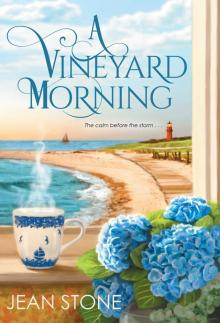 A Vineyard Morning
A Vineyard Morning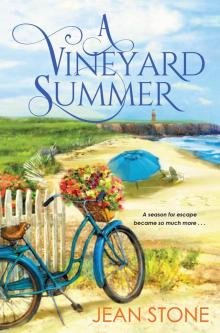 A Vineyard Summer
A Vineyard Summer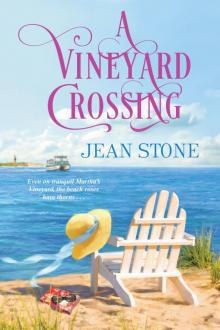 A Vineyard Crossing
A Vineyard Crossing A Vineyard Christmas
A Vineyard Christmas Beach Roses
Beach Roses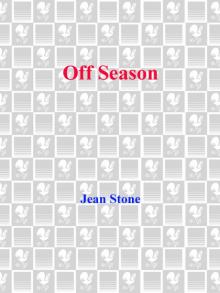 Off Season
Off Season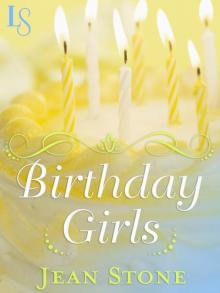 Birthday Girls
Birthday Girls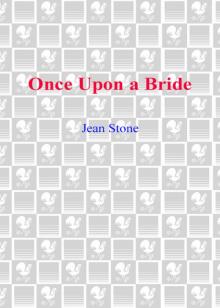 Once Upon a Bride
Once Upon a Bride Places by the Sea
Places by the Sea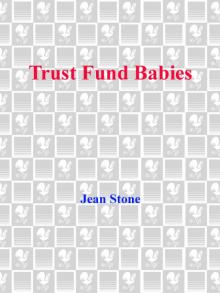 Trust Fund Babies
Trust Fund Babies The Summer House
The Summer House Tides of the Heart
Tides of the Heart Sins of Innocence
Sins of Innocence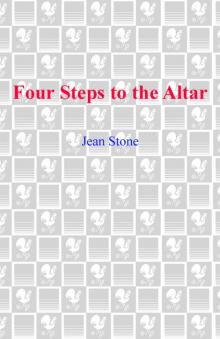 Four Steps to the Altar
Four Steps to the Altar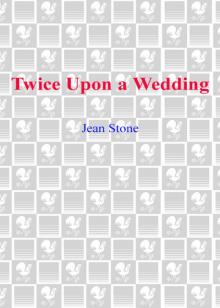 Twice Upon a Wedding
Twice Upon a Wedding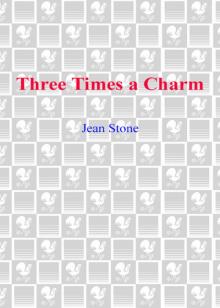 Three Times a Charm
Three Times a Charm